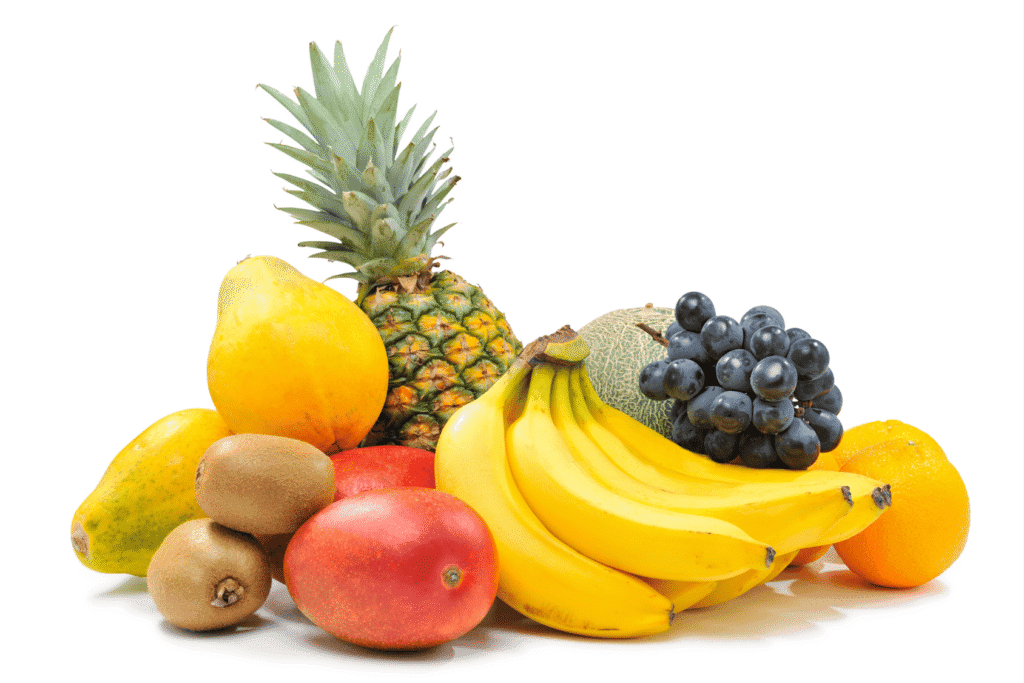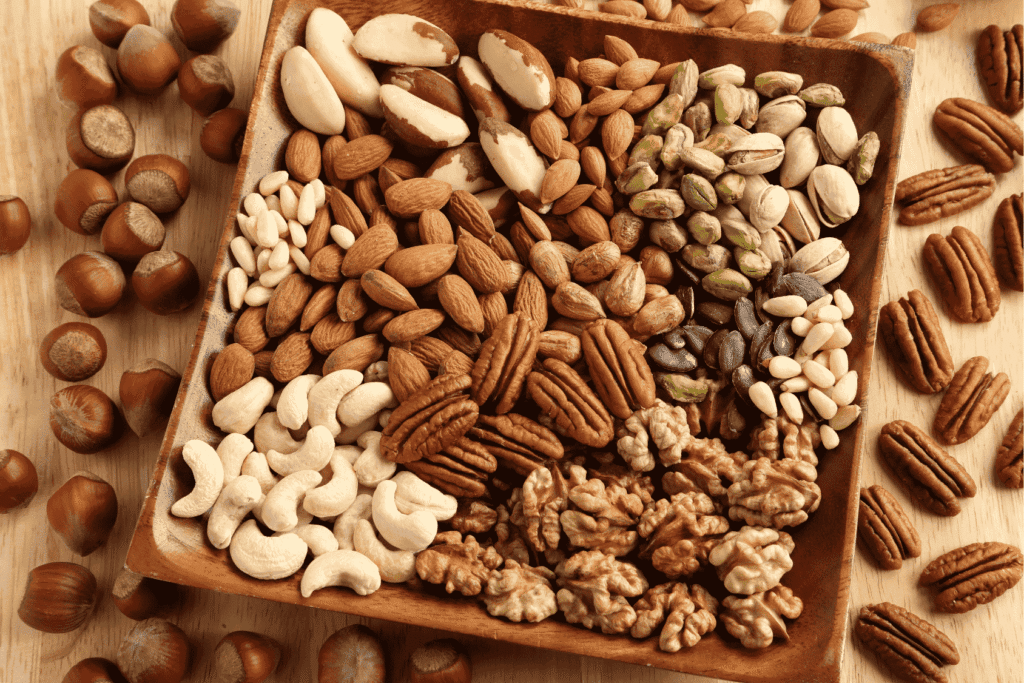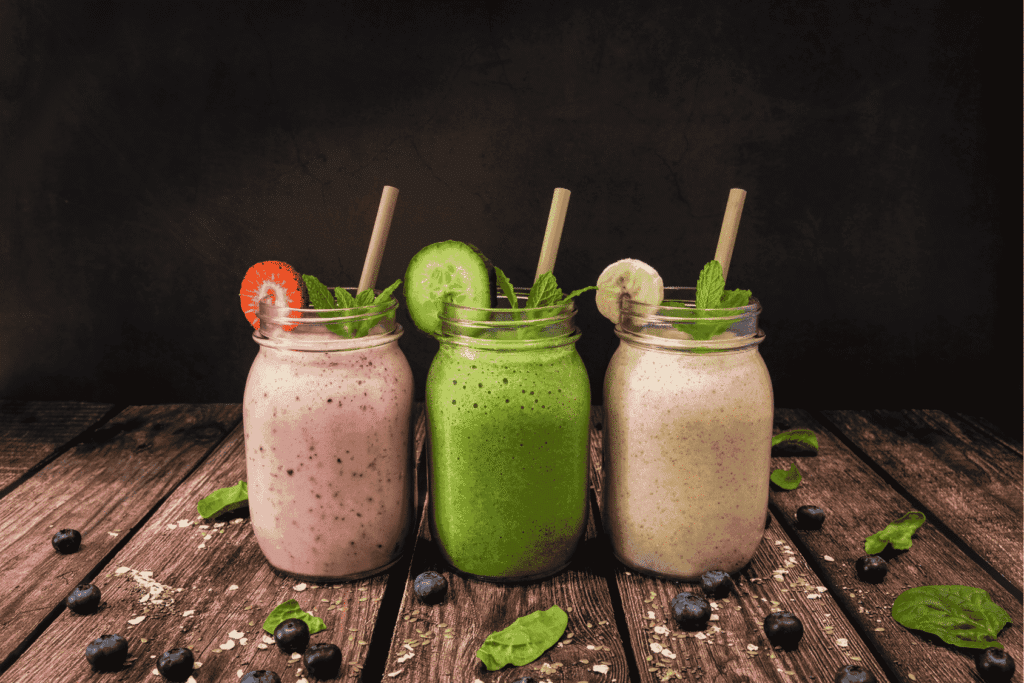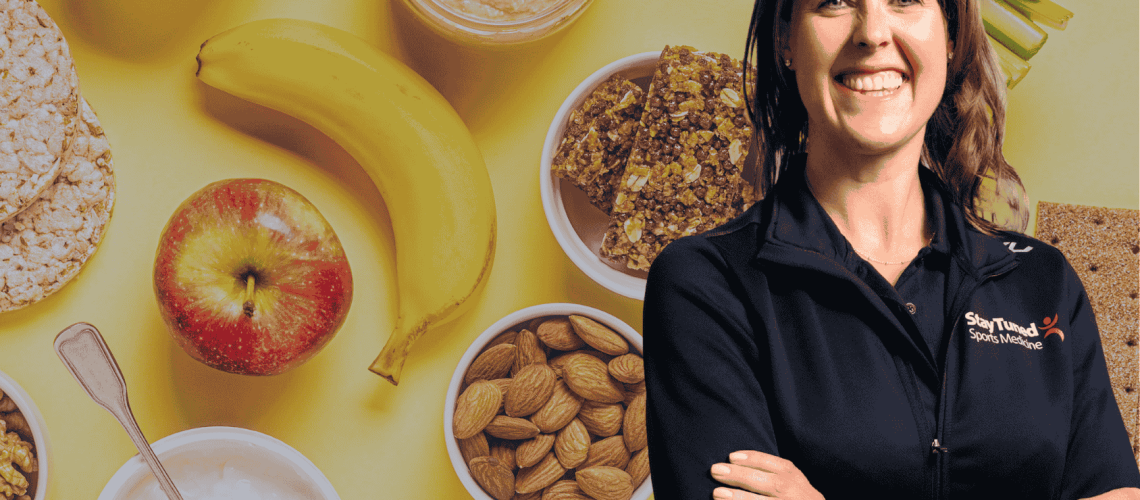We all get snack cravings—and choosing the right foods to satisfy the munchies can make a big difference to your energy, focus, and overall health. Snacks are an important part of a balanced diet. They help keep your energy levels steady, support productivity, and can prevent overeating at your next meal.
But when life gets busy, it’s easy to grab whatever’s quick—like chips, pastries, or lollies—which are often high in calories and low in nutrients. This makes it harder to maintain a healthy intake (NHMRC – Nutrient Reference Values, 2013).
The good news? Choosing snacks that are both satisfying and nutritious doesn’t have to be hard. Below are six smart snack ideas to help you satisfy the munchies and support your health goals at the same time.
1. SEASONAL FRUITS
Enjoy the variety of winter fruits in local supermarkets: apples, grapefruit, mandarins and oranges. 1 serving of fruit will provide a low-energy snack (approximately half the calories of 5 small squares of plain milk chocolate) full of fibre, vitamins and minerals essential for gut health, immune function, blood sugar control and other key bodily functions (AIHW, 2020).
It will satisfy your hunger and contribute to your 2 servings of fruit daily. Fresh fruit requires no preparation (except maybe a rinse under the tap) and can be quickly picked up and packed when running out the door.
Serving Size: 1 medium banana or orange, 2 small stone fruit or kiwi or 1 cup of fresh fruit salad
Energy: ~300kJ/serve

2. LOW FAT YOGHURT
Yoghurt provides us with a package of nutrients essential for health. Calcium for strong bones and teeth is just one benefit of including yoghurt as a daily snack. Other essential nutrients provided include protein (for maintaining muscles and the repair of damaged tissues), phosphate (which is also vital for bone health) and live cultures that support gut health (Dairy Australia).
Plain or fruit-flavoured yoghurts are appropriate choices; however, be aware of yoghurts containing syrups, as these can be high in added sugar. For additional flavour, nutrients and an extra crunch, sprinkle with untoasted muesli. To avoid the yoghurt from becoming warm, freeze or consume it in the morning.
Serving Size: 200g
Energy: ~600-700kJ/serve
Carbohydrate: 30g/serve
Protein: 10g/serve
Fat: 3g/serve
3. NUTS
Nuts contain good sources of nutrients that are key in maintaining heart health (Heart Foundation, 2023). Monounsaturated and polyunsaturated fats can help with regulating cholesterol levels. In contrast, vitamin E, copper, zinc, magnesium, and selenium are antioxidants that reduce damage to cells and dietary fibre, and plant sterols (found in certain nuts) can help lower cholesterol reabsorption into the gut.
Try a small handful of unsalted nuts for a morning or afternoon snack. Divide up into individual serves to assist you in controlling your portion size.
Serving Size: 30g (small handful)
Energy: ~600kJ/serve
Carbohydrate: 2g/serve
Protein: 5g/serve
Fat: 11g/serve

4. CRACKERS
Crackers are a great snack for eating on the run. Spread them with a small amount of low-fat dip, honey, or jam.
If you have more time, try some of the toppings below, as these will help you achieve your daily requirements for other nutrients such as monounsaturated fat, calcium, and vitamins. Try 3 crackers and select one of the options below:
- 1-2 thin slices cheese + tomato
- Sliced tomato + basil leaves + pepper
- ¼ avocado
- 95g tinned tuna (in olive oil or water – drained)
*Nutritional content will depend on the toppings selected.
5. PITA CHIPS AND DIP
Want a healthy alternative to packet chips? Try some homemade pita chips with your favourite low-fat dip. Using half a pita bread pocket or mountain bread wrap, lightly drizzle with ½ tsp olive oil, sprinkle with your favourite herbs, and toast under the grill or sandwich press. Serve with 1 tablespoon of your favourite low-fat dip.
Serving Size: ½ small pita pocket + 1 Tb low fat dip
Energy: ~420kJ/serve
Carbohydrate: 17g/serve
Protein: 4g/serve
Fat: 1g/serve
6. SMOOTHIES
One of my favourite snacks, particularly after a long morning run, is to mix my favourite fruits with yoghurt and milk to make a smoothie. This is a practical, quick and convenient snack when you are pushed for time. It has a low GI, which will keep you full until your next meal (Sports Dietitians Australia, 2022). It will provide you with a good source of dairy and a combination of carbohydrates and protein, essential nutrients required to optimise recovery from training.
Mango, Berry and Banana Smoothie
- 250ml low-fat milk
- 1 medium banana
- ½ cup mixed berries
- 1 mango cheek
- 200g low-fat natural or vanilla yoghurt
Combine all ingredients in a blender until smooth. Add ice cubes if desired and drink immediately.
Serving Size: Serves 2
Energy: ~750kJ/serve
Carbohydrate: 28g/serve
Protein: 8g/serve
Fat: 2g/serve

Although these snacks are nutritious it is important to still be mindful of your portion sizes. To help avoid overeating:
- Take a break from work to enjoy snacks
- Taste and savour every mouthful
- Do not eat out of packets – instead serve up an individual portion
Bottom line: Healthy snacks don’t need to be bland or boring. With a little planning, you can satisfy the munchies in a way that supports your energy, your health, and your daily routine.
Emma Morris
Dietitian, Sports Dietitian & Nutritionist

📚 References
- Australian Institute of Health and Welfare. (2020). Fruit and vegetable consumption. AIHW. https://www.aihw.gov.au/reports/food-nutrition/fruit-and-vegetable-consumption
- Dairy Australia. (2022). Why dairy matters. https://www.dairy.com.au/health/dairy-and-your-health/why-dairy-matters
- Heart Foundation. (2023). Nuts and heart health. https://www.heartfoundation.org.au/Heart-health-education/Nuts
- National Health and Medical Research Council. (2013). Nutrient reference values for Australia and New Zealand: Energy. https://www.nrv.gov.au/nutrients/energy
- Sports Dietitians Australia. (2022). Recovery nutrition. https://www.sportsdietitians.com.au/factsheets/food-for-your-sport/recovery-nutrition/

